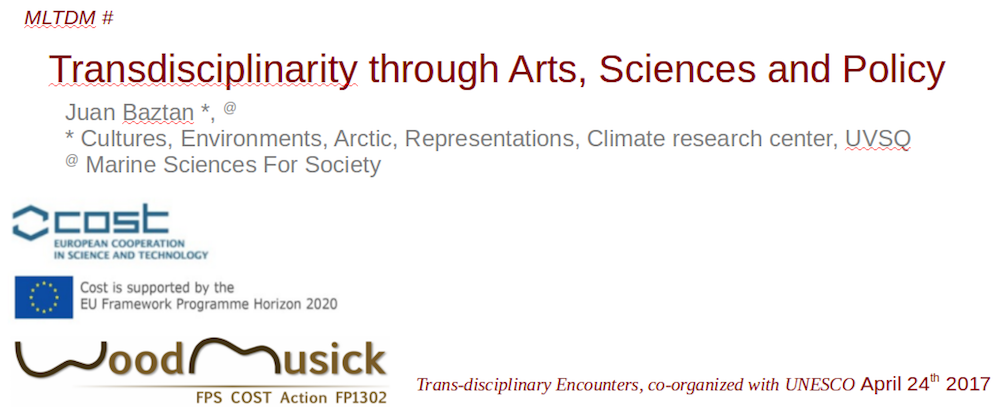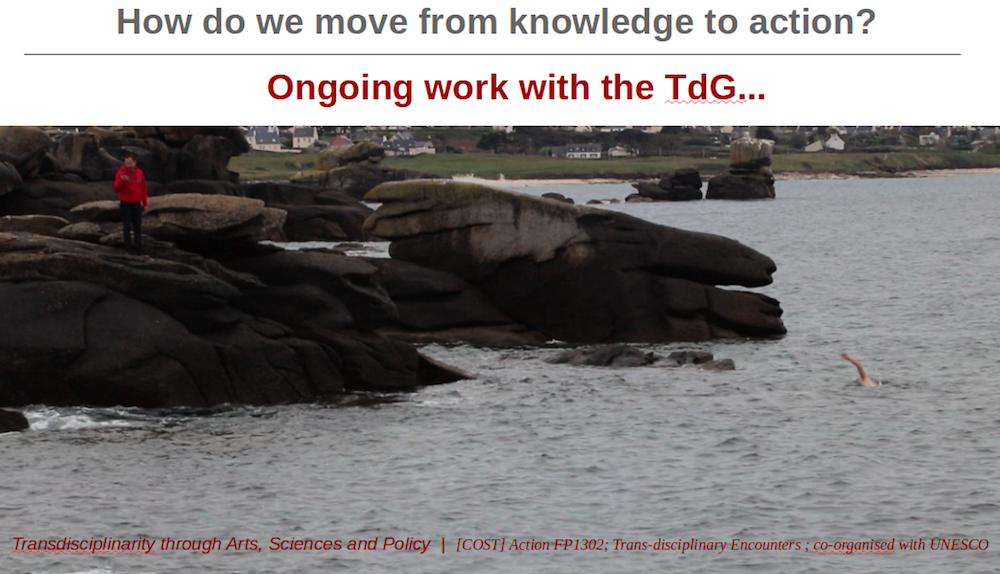Transdisciplinarity through Arts, Sciences and Policy
The CEARC participates in the Trans-disciplinary Encounter in the Philharmonie de Paris, 24 April 2017.

One of the effects produced by the emerge of specialized researches, is that each discipline has developed, along the time, its own method and language that makes substantially inaccessible and shareable, out of its specialist context, its own patrimony of knowledge . This represents a serious barrier to any attempts to reconstruct the unity of knowledge, particularly when the focus of the study is represented by a subject that is the product of traditional knowledge systems, whose main connotation is that of being carrier of tangible and intangible values.
This joint focused meeting between the UNESCO Transdisciplinary Chair of Florence University and the COST Action Wood MusICK is a chance to think together about the epistemological methodology of complexity (transdisciplinarity) applied to the studies on Early Wooden Musical Instruments (WMI).
J Baztan, CEARC - Versailles Saint-Quentin University :Transdisciplinarity through Arts, Sciences and Policy
P. Orefice, Head of the UNESCO Trandisciplinary chair – University of Florence. Interdisciplinarity, Pluridisciplinarity, transdisciplinarity.
M Fioravanti, GESAAF - University of Florence. Proposal for a Transdiciplinary approach to the study of Historical Wooden Musical Instrument.
C. Carlier, LMGC, Montpellier University. Wood selection for making musical instrument : pluridisciplinary approach.
G Rossi Rognoni, Royal College of Music. London. Point of view of the Cutator.
A Pournou, Technological Educational Institute of Athens. Point of view of the Conservator.
P. Fisette, Louvain School of Engineering. Case study : the piano action : mecanoorganology approach.
Sibylle Emerit, CNRS. Transdisciplinary approach of ancient egyptian musical instruments : what benefits can be expected ?
Round Table





